PCIC ME 2017 in pictures
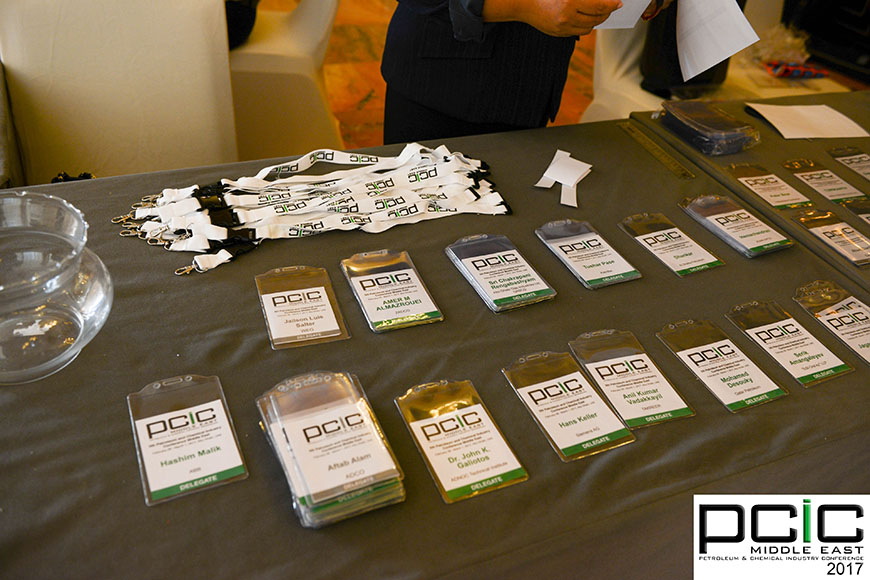
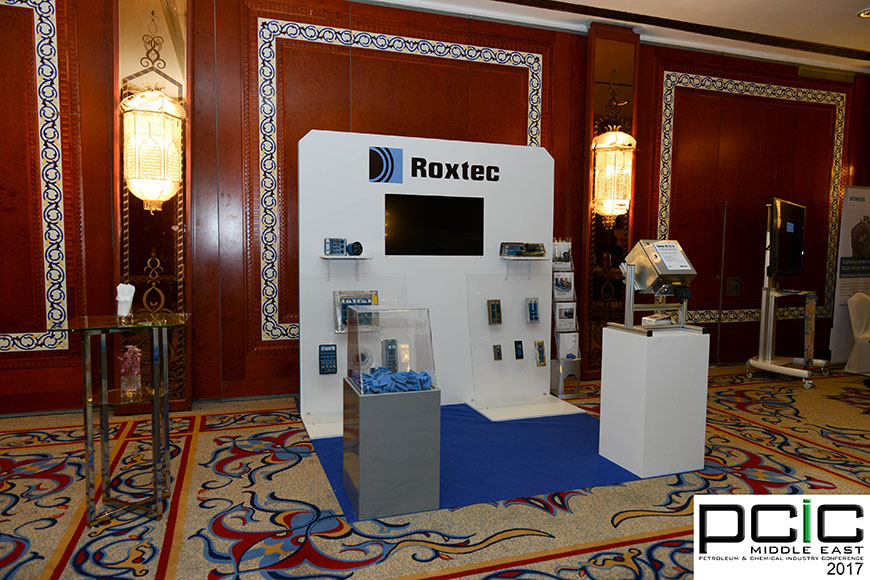
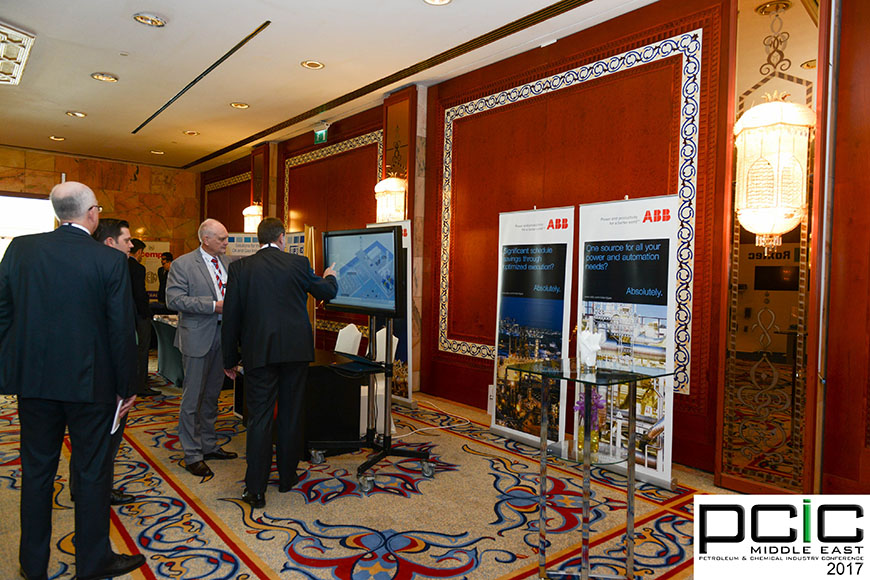
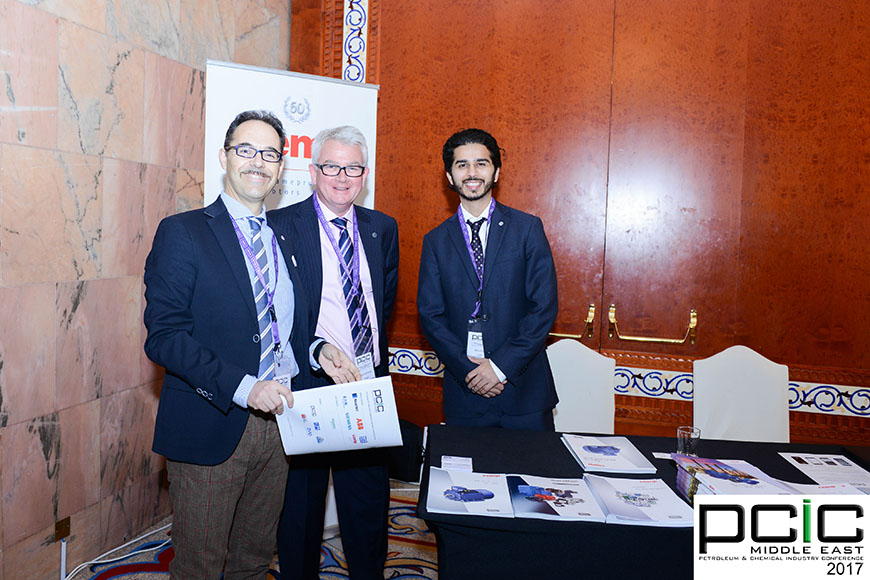
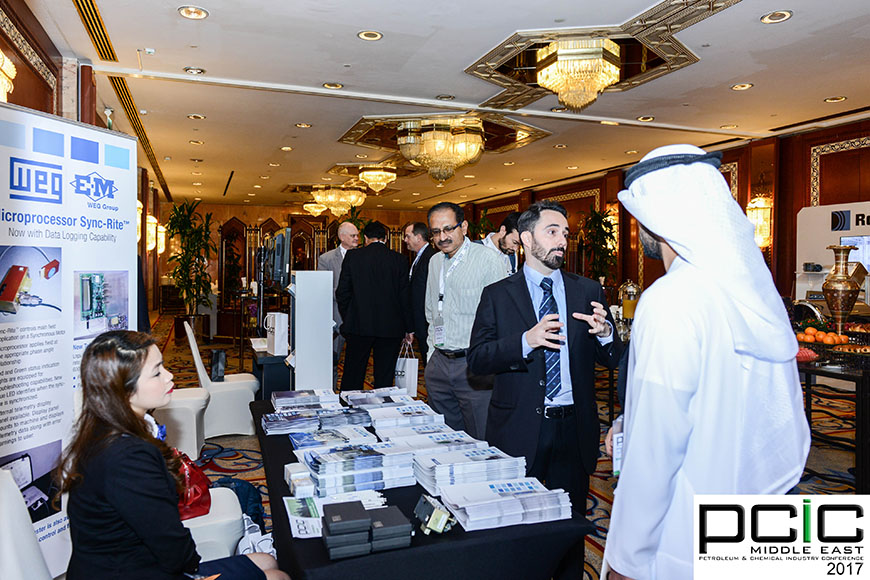
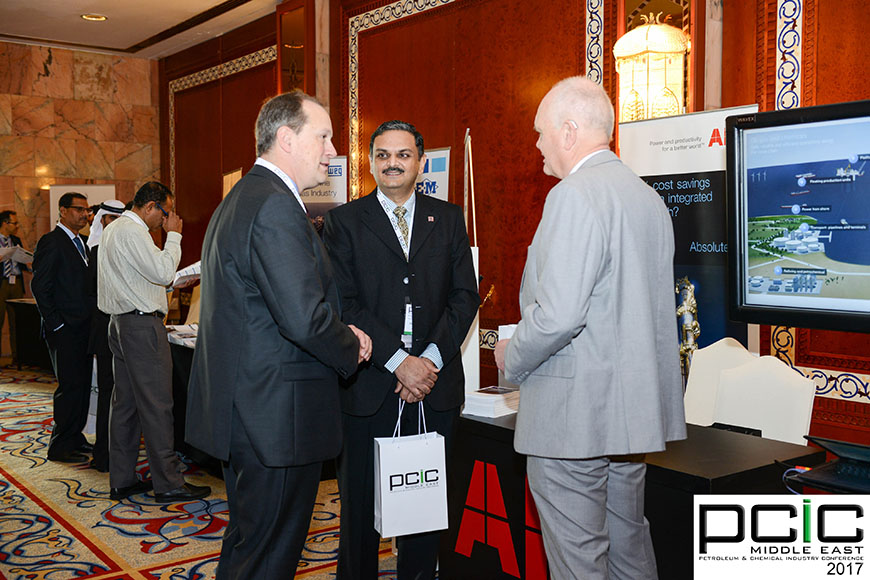
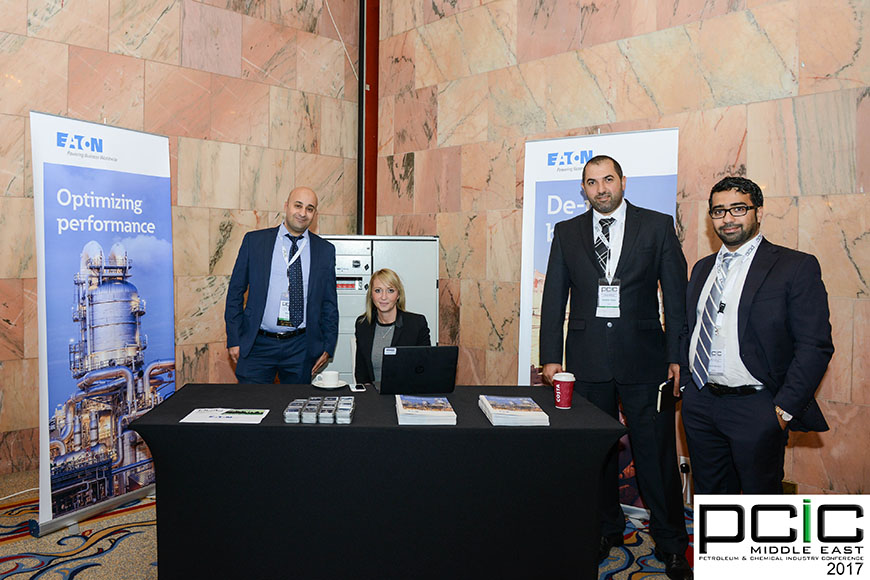
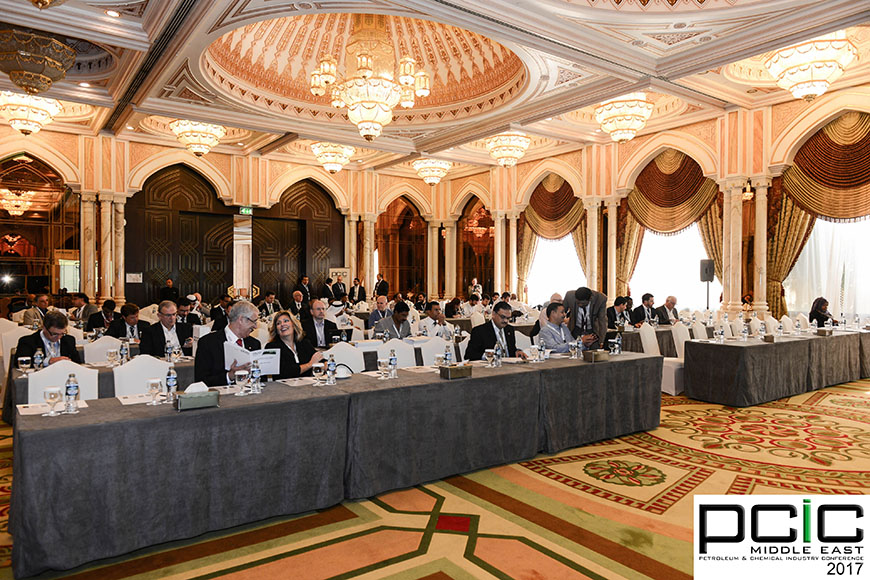
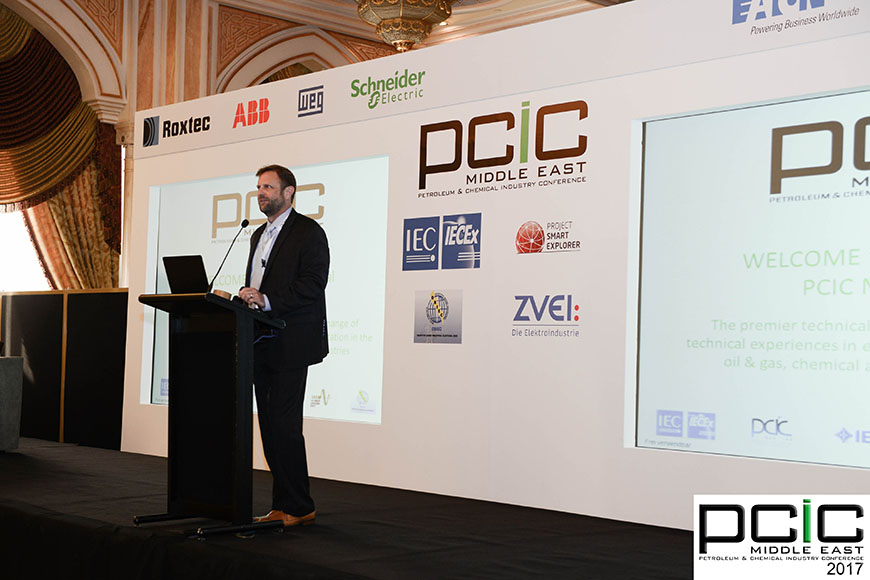
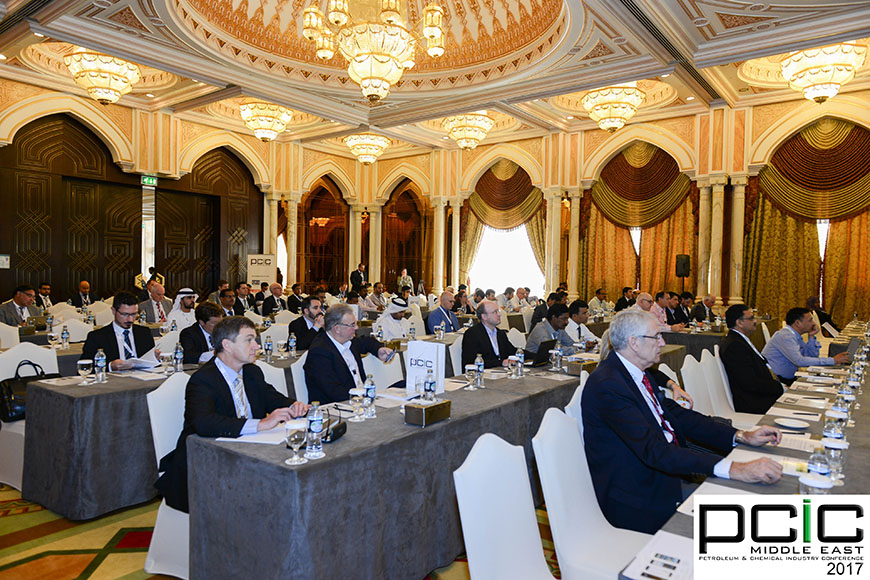
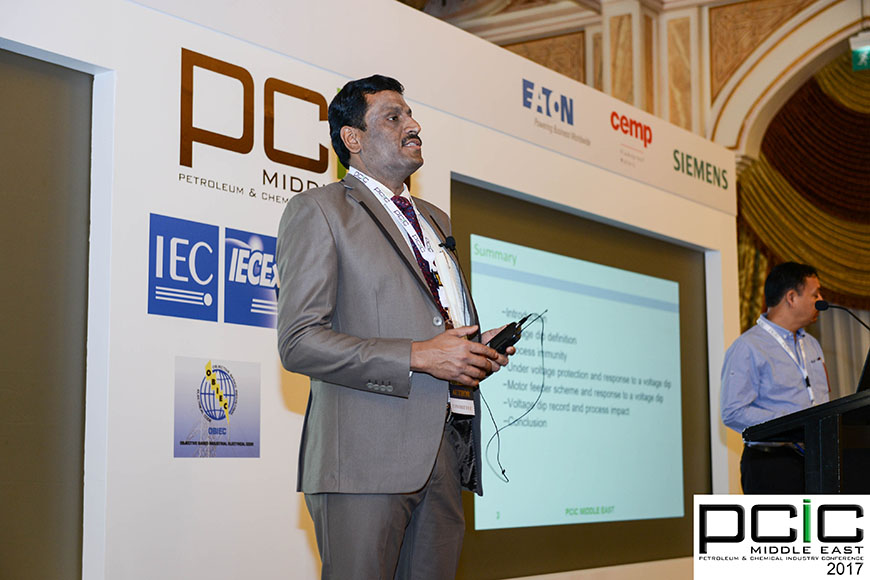
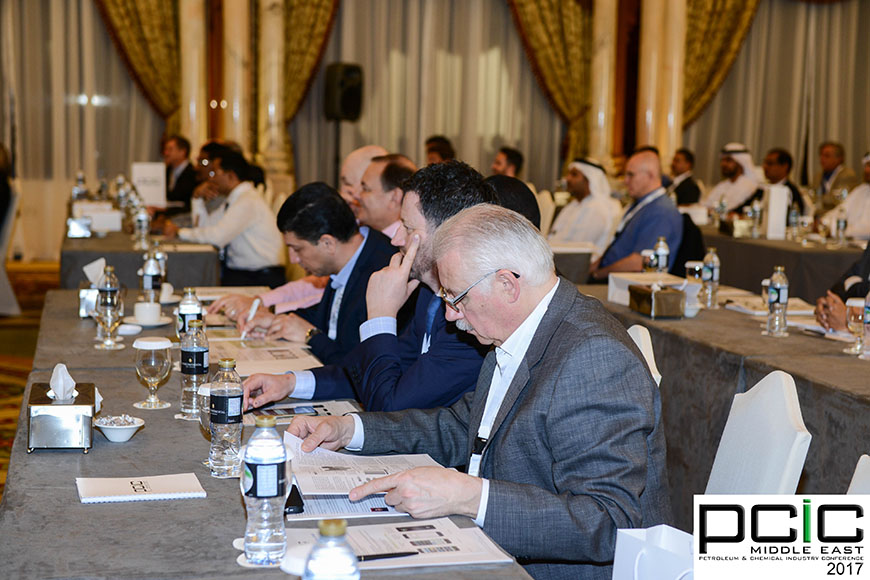
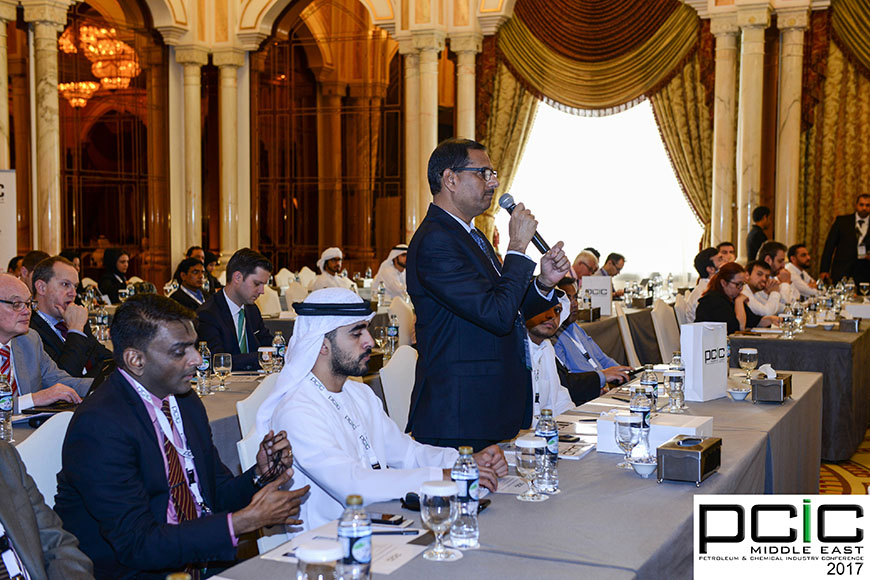
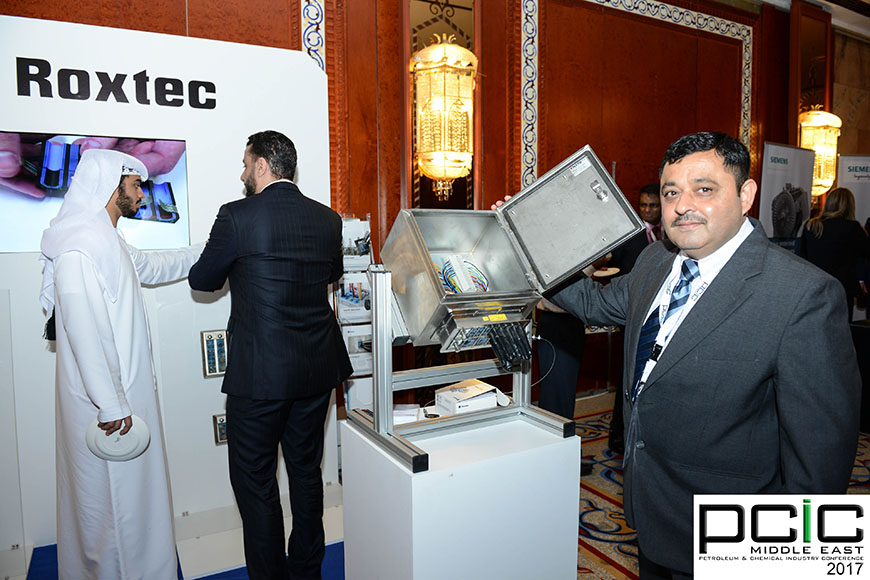
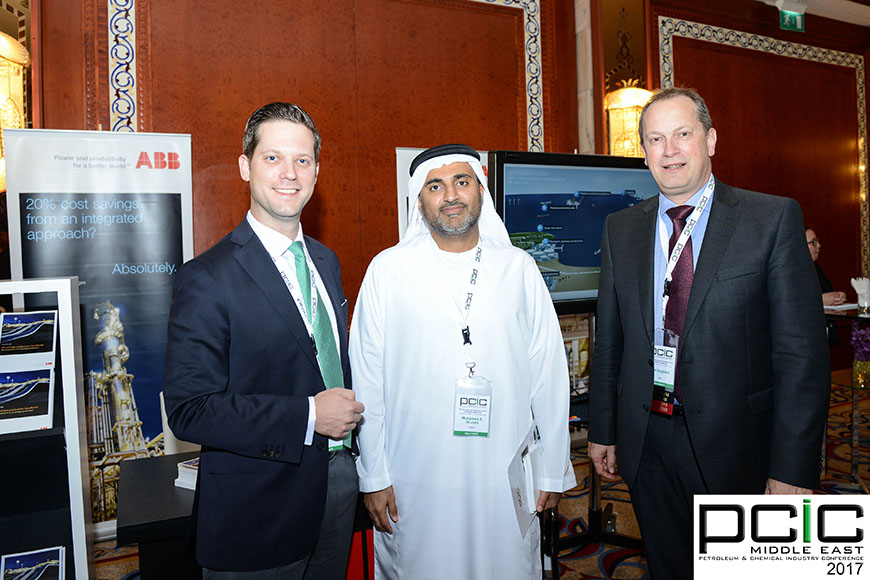
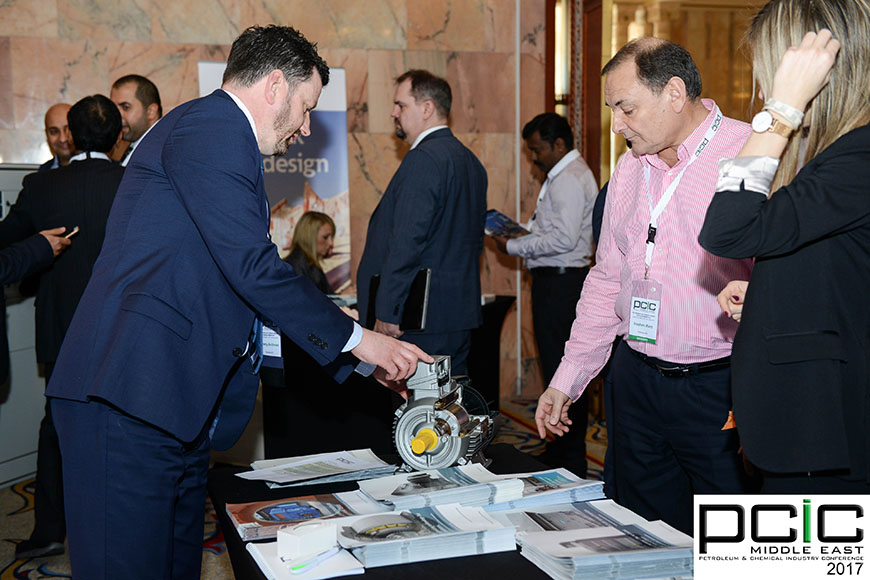
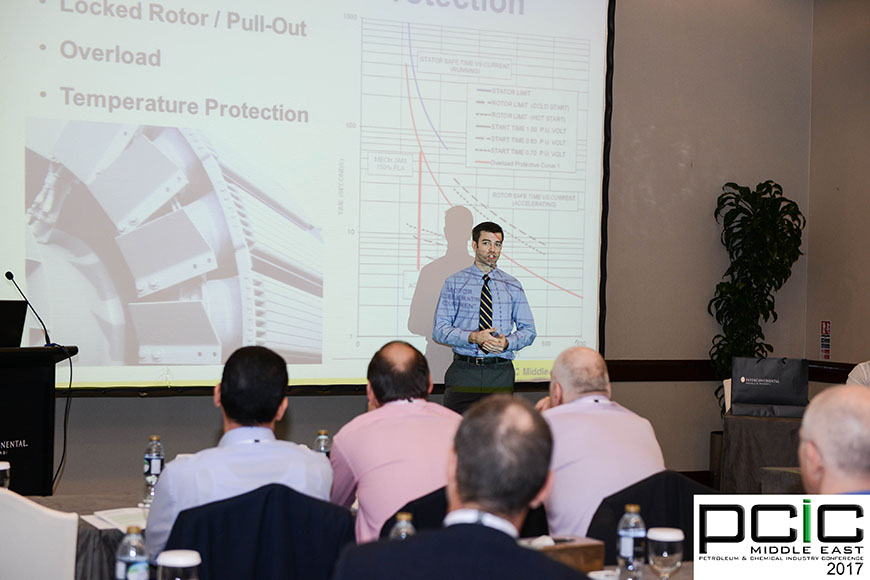
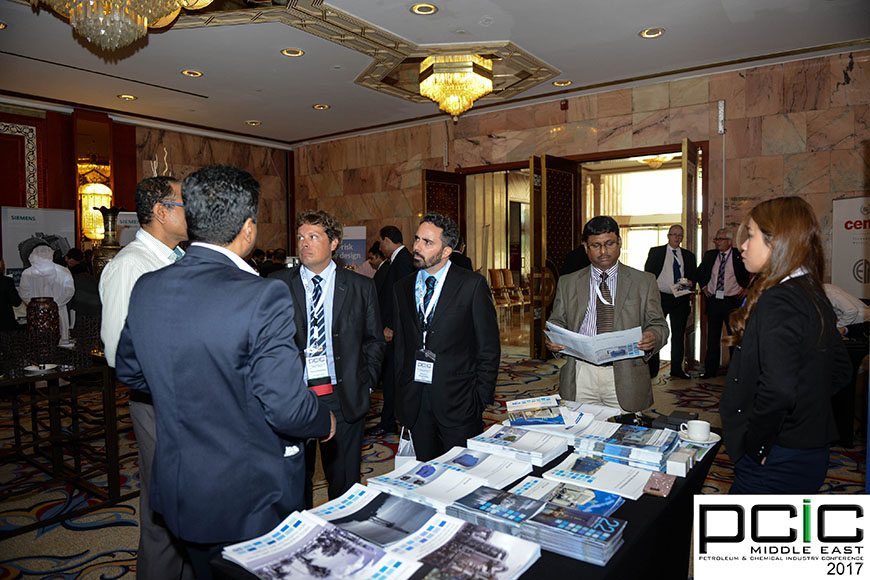
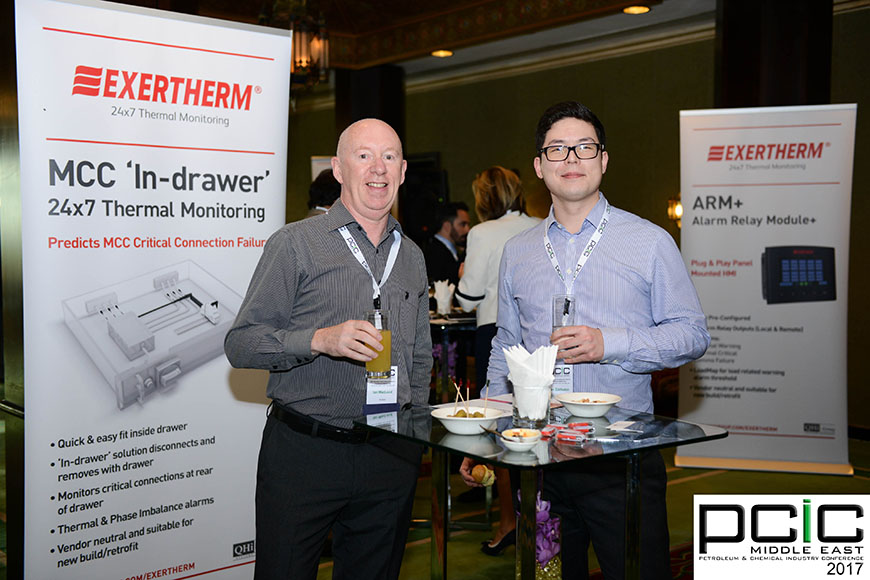
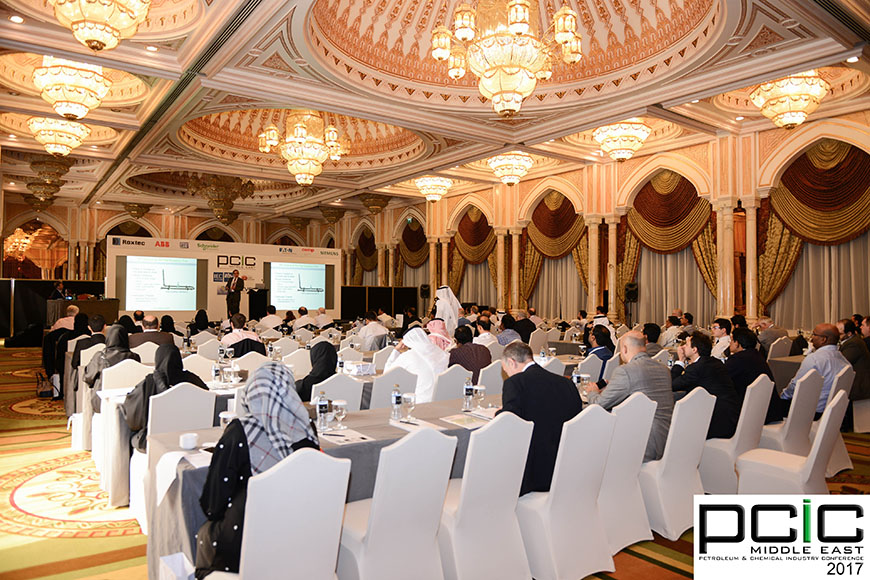
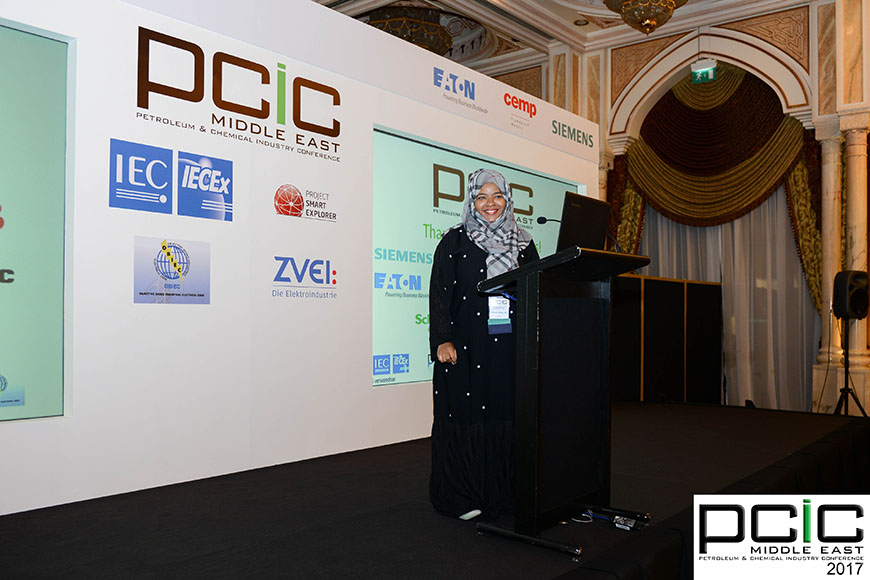
Interview of Jean-Charles Guilhem: Why PCIC Europe and PCIC Middle East matter? By Kristina Hakala
A quick check into the rear-view mirror is a surprising experience when you meet with PCIC committee members. You actually enter the rough cycles of an industry characterized by harsh environments and non-negotiable safety and security requirements.
Jean-Charles Guilhem missed the first PCIC Europe conferences, since the launch in 2004, but has caught up since. As Chair of PCIC Europe from 2013 to 2016 he doubled the attendance in PCIC Europe and created PCIC Middle East. Currently in the role of General Assembly Board Chair, he consolidates the organisation of PCIC Europe for further development and helps the committee, representative of end-users, EPCs and manufacturers, to take over new challenges and facilitate decision making.
For those who didn’t realise it, PCIC is about volunteering, so it requires discipline in individual time planning from each committee member to make things happen. Two annual conferences are the most visible part of the activity: one in a European capital – the 15th will take place in Vienna, and the regional sister event, PCIC Middle East, in Abu Dhabi, since 2012.
Offstage we find the prerequisite for success – the discipline of all committee members and sponsors to follow strict rules to avoid any commercial bias. Then, reciprocity applies and end-users, EPCs and manufacturers can share lessons learned from the field.
“This continuous and mutual share is crucial”, says Jean-Charles and mentions the revealing example of the variable speed drives. “Imagine standard equipment with up to let’s say 80MW motors. All of a sudden you have the VSDs and can increase the capacity in a revolutionary way.”
“Everything and its contrary was said – and also done”, he recalls.
This is a typical metamorphosis where PCIC, by sharing best practices and analysing failures, gains insight and can clarify the situation thus facilitating the integration of innovation in the industry.
Foreseeing the challenges and analysing minor accidents in order to avoid a catastrophe could be a synthetic summary of PCIC works, but everyone involved admits it – there are no shortcuts in this business.
Jean-Charles takes another example: “When the offshore took the dive and subsea became hot, every manufacturer began to develop their in-house design for connectors. Just imagine the mess for the deployment of a project where the main challenge consists in connecting the incompatible.”
“It is our responsibility to take into account project budgets by introducing common standards”, Jean-Charles adds. “This is the way we prevent accidents, avoid downtime and ultimately save money in the industry”.
He mentions the ATEX directive as another example. “We work in hazardous environments and the explosive atmosphere reaches far beyond the industrial site. How do we protect employees and residents in these areas? What is needed to comply with the very latest updates?”.
“Our role also is to demystify rules and regulations”, Jean-Charles says. And it is necessary to do it together, all stakeholders gathered around the table. “This is far from simple even when we have defined the challenge as such”, he adds and recalls: “Some years back we noticed that up to one third of the proposed technical papers somehow related to the arc flash. This trend we first observed in North America at IEEE/IAS/PCIC Conferences, but the same occurred also here in Europe where the situation is very different”.
“Then, this Arc-Flash frenzy in US created some confusion here in Europe as the incidents described had nothing in common!”.
“It took some time”, Jean-Charles admits, “but then we realised that the connection modes were different. Thus, standards deployed in North America were different from international standards leading to different consequences and protection measures than in Europe”.
The digital age again requires understanding of new concepts, transformation and adaptation.
“This adventure is never-ending”, says Jean-Charles Guilhem. That is why PCIC Europe and PCIC Middle East is on-boarding more young engineers at every conference – to consolidate the current and jointly assist innovation.
Ghada Matar Ali Interview
Interview of Ghada Matar Ali, Keynote Speaker of the 5th PCIC Middle East Conference
By Kristina Hakala
“I used to like mathematics and physics in secondary school so the engineer career seemed very attractive to me”.
This is a quick flashback into the school years and times before the choice of profession by electrical engineer Ghada Matar Ali, the first ever key note speaker at PCIC Middle East.
She is laughing, as did her friends once upon time.
“How can a lady become an engineer, they told me.”
“My family also was cautious with engineering, and preferred to actively promote what they called easier jobs, like teaching.”
“You will suffer, they told me”, she adds more thoughtful. “But I didn’t change my mind. Not at any point, and after listing my top 3 college options I was lucky to get my preferred, first choice.”
Women studied separately, she recalls. “We were a larger group – already then, many female students in engineering – following a course that was neither easy, nor difficult.”
With an B.Sc. degree in electrical engineering she got in 2008, from the United Arab Emirates University, Al Ain, she joined ADCO.
“My studies related more to IT, so initially I was hoping to find an IT engineer job in ADCO, but there weren’t any opportunities in that category then. So, I decided to try the electrical scope, Insh ‘Allah. Luckily ADCO and the ADNOC Group have a training program for fresh graduates (CAMS). So, I followed this program, and with the support of my management I actually finished it ahead of plan.”
“Today, for sure, I would not change into another role for anything in the world”. Saying that, she laughs again and then explains: “I have to say I am very lucky! The management is very supportive – especially Mr. Khalid Abdul haq Abdul Samad, who is Vice President at the Technical Centre-Engineering, and Chief Electrical Engineer, Mr. Khalil Abdel Aziz Mansour. Also, we are so lucky because our male colleagues are really proud of us!”.
Once she attended FAT for 220/33KV 140MVA power transformer (as shown in the picture). She was the first young lady engineer representing her company abroad alone, witnessing FAT for such major equipment. Another significant experience was when she spent six months on a mega project (SARB PKG4) in South Korea. She says she learned so much in the daily work, but also living in a different country. She says she is ready for a new experience when that opportunity comes.
Currently Ghada Matar Ali is part of a 33-member team, in the In-House-Engineering Department at the ADCO Technical Centre. She is the focal point for the Technical Centre-Engineering website. In parallel, as the secretary of an electrical forum in ADCO, she every two months coordinates a workshop with a selected vendor that presents a new offer or significant upgrades in the existing portfolio. Consequently, keeping track on latest developments is vital in her work.
PCIC Middle East is for her a great source of information, with local and international participation, every year with technical excellence and critical updates at hand. This is the third PCIC Middle East conference Ghada Matar Ali attends. This year she is the co-author with three colleagues from ADCO of a technical presentation, but she also is the first key note speaker ever at PCIC Middle East.
“I think it was three years ago that I discovered PCIC Middle East. My manager had invitations and sent me and several colleagues to the conference. We usually attend 5 to 10 persons together.”
When I ask her for examples of breakthrough findings in these three years she recalls a technical presentation about partial discharges. “I don’t have the opportunity to see this happen on site, but the author shared many pictures, that clearly showed me the risks, so the presentation really made me aware of how to detect and monitor PD challenges in electrical equipment”.
Every year she looks forward to meeting with attendees who can update her on offers like program simulations for electrical systems. Last but not least she takes with her all available catalogues and samples – like power cables – to the office for further discussion, and possibly a new vendor workshop plan.
One topic that she has been missing is within renewable energy the Solar system batteries, failures, design enhancement and battery regeneration in these new technologies… a message to coming conferences.
Miss Ghada Matar Ali received the B.Sc. degree in electrical engineering from the United Arab Emirates University, Al Ain, UAE, in 2008. She is member of the Institution of Engineering and Technology (IET). She is working in the ADCO Technical Center – the In-House-Engineering Department since eight years as Electrical engineer. gali@adco.ae
Peter Pieters Interview
Engineers network at a terrace in Basel
“A start-up is a company working to solve a problem where the solution is not obvious and success is not guaranteed”, says one of the many definitions available to describe innovation hubs. PCIC Europe is not a company, also it didn’t begin in a backyard garage, but it is indeed working to solve problems where the solution is not obvious and success is not guaranteed – at least immediately.
“A start-up is a company working to solve a problem where the solution is not obvious and success is not guaranteed”, says one of the many definitions available to describe innovation hubs. PCIC Europe is not a company, also it didn’t begin in a backyard garage, but it is indeed working to solve problems where the solution is not obvious and success is not guaranteed – at least immediately.
While the 14th PCIC Europe conference scheduled for mid-May, this year in Vienna, is a mature reference event for engineering excellence in the petrochemical industry, the first editions of PCIC Europe were more casual. The first two years the conference took place in Basel.
Executive Committee Chairman, Peter Pieters describes how he heard about the event in 2004: “Someone just told me about it”.
“Everything was quite confidential then, and without any advertising. The only way to become aware about the PCIC Europe conference was through your own address book and good contacts”, he adds, pointing out the invaluable importance of a good network.
“I was then in a group implementing the ATEX directive, relating to equipment for potentially explosive atmospheres.”, Peter recalls, and mentions Dow and Shell among the end-user participants.
“At that time, nothing was organised in terms of logistics, so we had to find a dinner plan on our own. I asked another participant if he would like to go for dinner with me, and we found a nice terrace in a small square. Our discussion about electrical challenges in our work respectively was very interesting. When it was time for the dessert several other conference attendees had joined our table as they strolled by, so we finished the evening together, maybe ten of us, getting to know each other better.”
“It was a very pleasant moment”, Peter recalls.
“This opportunity to meet with new experts, dialogue and develop a network of peers is the beauty of PCIC”, he adds emphasizing that this is a unique opportunity especially for an end-user. “I will never in my daily work meet with any competitors”, he explains.
“The equipment manufacturers are the ones that capture the latest developments in technology because they interact with several end-users and consequently have the most complete vision of on-going innovation, successes and failures in the application of electrical and instrumentation in the COG industry”.
These lessons learned from real experience on the field when shared and analysed together between end users, EPCs and equipment manufacturers sketch the path for innovative solutions to complex technical challenges.
Thus, equipment manufacturers contribute in a critical way to set the agenda, but strict conditions apply, Peter underline: “none of us wants to listen to a promotional presentation. This is not the purpose of PCIC Europe and PCIC Middle East”. Therefore, the committee, while reviewing the abstracts, will always ask for which end-user the described solution was developed and deployed, whether the case study details success or a failure.
“We are not interested in a brand and what you can sell, but want to understand in a practical way how we can apply the solution that you present.”
“In my case”, Peter says, “as I work in a company in the Middle East, I will obviously never have direct use of a technical paper about subsea in arctic environment. Still, I might learn something new that relates to a pending problem I have on my desk and need to solve. With this insight, I could abandon a likely dead-end and tackle my challenge from a different angle with brand new ideas.”
“This is what our conferences are all about – this is the PCIC spirit”, Peter says.
In his role as Executive Committee Chairman in PCIC Europe he wants to increase the participation of end-users to both conferences – PCIC Europe and the regional sister event in Abu Dhabi, PCIC Middle East. This will favour and feed the start-up state of mind.
The second goal Peter Pieters describes for the coming years, is to develop further the PCIC Library on line. Currently all abstracts are submitted using this data base.
“We want to develop the Library so that electrical engineers can upgrade their level of expertise reading technical papers related to a specific problem. Ultimately each technical paper should have a code that indicates which level of knowledge you acquire by reading it”, Peter describes. “And even more, as you can reach out to authors for which PCIC Europe and PCIC Middle East are the perfect platforms to meet them”.
Kristina Hakala
Allen Gibson Interview
Happy 5th Anniversary PCIC Middle East!
Whether you say “five” or “hamza” we all can agree that the upcoming PCIC Middle East conference is a milestone.
PCIC stands for the Petroleum and Chemical Industry Conference, and PCIC Middle East is the regional sister event of PCIC Europe organizing the premier Conference for the exchange of experience in electricity and instrumentation (E/I) in the oil & gas, chemical and pharmaceutical industries.
The conference was launched in November 2012, during ADIPEC, in a hotel at walking distance from ADNEC, the Abu Dhabi National Exhibition Centre. But already then, local press releases mentioned the newcomer among the activities during the global reference event. PCIC Middle East was “in” and included into the UAE agenda.
Since the first edition, PCIC Middle East has changed dates, switched season, and also moved closer to the Corniche promenade. Content has become more specific as more abstracts are submitted specifically for this conference, leaving behind the launch, with a program of the best technical papers written to address challenges and innovations experienced by GCC based oil & gas owners, operators and engineering firms.
Allen Gibson, the PCIC Middle East Local Committee Chair, looks back at the previous events, and describes the three first conferences as still “rather European”. “One of the best indicators of the accurate regional touch is that in 2016 – and for the first time – more than 50% of the attendees were end-users representing oil, gas and petrochemical companies from the GCC”,
Another indicator reflects the global market evolution and changes in spending, with moves from capital expenditure to operational expenses according to the circumstances. “Three-four years ago, many papers were focused related to greenfield projects”, Allen recalls.
“This has changed with current lower oil prices towards a greater focus on maintenance and operational reliability.”
The 2017 conference program comprises 15 technical papers and 2 tutorials, with several technical papers sharing experiences to improve operational efficiency and reliability and cyber-security or “hardening” of these very critical E/I systems which power and control the operating assets.
The Middle East, with such a unique concentration of natural resources and its industrial infrastructure composing with both ANSI- and IEC-equipment is like a giant and real-time research laboratory for many critical challenges. “
“The PCIC Middle East is a first-hand opportunity for manufacturers to listen to experiences of the important end-users and operators, and to directly network with the people and companies that build and operate some of the largest projects in the world. This non-profit conference is dedicated to sharing technical information and experiences, including product certifications, personnel competency and training, electrical safety, and operational reliability.”, Allen describes.
This year a new mobile-based application is introduced at the conference in order to facilitate the Q&A session after each presentation, allowing attendees to use SMS to send questions to the moderator. “We want to make sure all questions that occur during a technical presentation are transmitted to the moderator. This, we hope, will stimulate the open dialogue of the audience with the author”, Allen says. “Just type it like an SMS and send!” A key focus within our industry and this conference is to help bridge the generational gap within engineering. This new SMS option to submit questions is being used to make everyone feel comfortable to participate without having to be in the “spotlight” among peers.
The PCIC Middle East Local Committee is proud and pleased to welcome Tuesday 28th February, the first ever invited key note speaker, Ms. Ghada Matar Ali from ADCO (Abu Dhabi Company for Onshore Petroleum Operations). This opening to the conference will describe the perspective of a young electrical engineer, including the opportunities, support and her path to be successful.
Kristina Hakala
